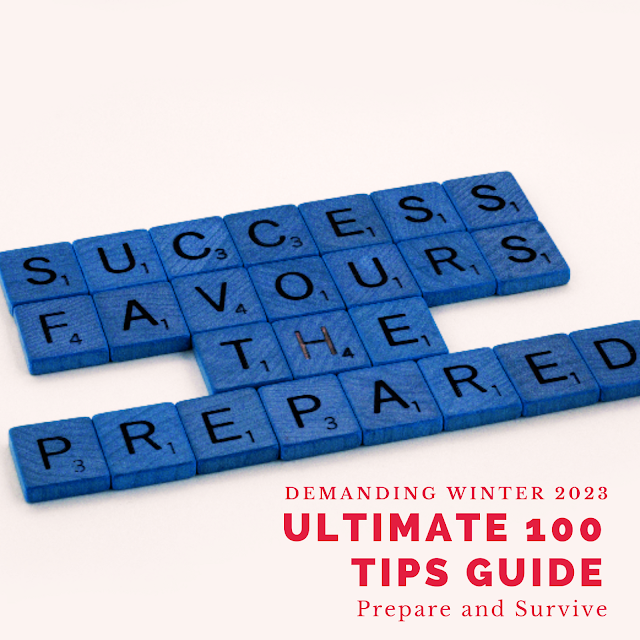
Winter is here, and in many countries around the world, it's challenging citizen life. Higher inflation, higher energy prices, and higher food and gas prices create a situation where people can barely get by.
If you're worried about how to keep yourself and your family afloat this winter, we've got 100 tips to help.
Here you may find the fifth part of the list – Transportation and travel saving tips.
Other features of this series
- Part 1: Energy-saving Tips
- Part 2: How to Prepare for a Power Outage
- Part 3: Grocery and Food-Saving Tips
- Part 4: Check Your Self-sufficiency Level
- Part 5: Transportation and Travel-Saving Tips (this post)
- Part 6: Financial Preparedness
77. Watch the prices
It is worth buying fuel when you can get it cheap.
78. Turn off the car's electrical equipment
Don't keep the car's electrical devices, such as seat or window heaters, on unnecessarily. Those are consuming fuel also when you don't need them.
79. Preheat the car properly
When the temperature drops below five Celsius degrees below zero, you should always preheat the car. It saves the engine, reduces emissions, and lowers fuel consumption.
80. Check the tire pressure
The car will consume more fuel or electricity if the tire pressure is too low. The forces drop when it's freezing, so it's worth keeping an eye on them. Taking care of tire pressure is also a safety measure.
81. Remove excess load from the car
Unnecessary weight increases consumption, so carrying around unnecessary junk, even in the car, is not a good idea.
82. Consider what is suitable driving speed
If you drive at 100 km/h instead of 120 km/h, you can easily save a liter or two fuel per 100 km.
83. Take the car off from traffic use during the extended holiday
In many countries, for example, a vehicle left unused in the yard during the holiday could be covered by cheaper car standstill insurance. Removing a vehicle from traffic use is easy and affordable.
84. Prefer carpooling
The simplest way to reduce fuel consumption is to not use a car. When traveling to work or taking children, carpooling is worth it.
85. Use your own muscles to move
If the trip is short, walking saves on expenses and gets you good daily exercise. You can also get around by bike all year round.
86. Prefer public traffic
In the best case, you can save quickly by using public transport. The commuter connection parking options should also be kept in mind.
87. Adopt a proactive driving style
Anticipation and reading the traffic are the most essential things in an economical, fuel-saving driving style. Keeping reasonable safety distances makes it easier in many situations.
88. Accelerate quickly to the desired speed
You should promptly accelerate to the desired speed. The so-called "steam acceleration" should be forgotten.
89. Get a new car with less fuel consumption
Fuel consumption can be influenced by choosing a vehicle that consumes less. A newer car is often more economical, but the vehicle's design is also essential. For example, an SUV consumes more than a sleeker model.
90. Use the cruise control less often
Cruise control cannot be used in traffic jams and is only sometimes the most economical option. For example, cruise control does not predict rises and falls of the speed.
91. Remove the unnecessary roof rack or ski box
Air resistance increases fuel consumption, so an unused roof rack or ski box should be taken down from the car's roof.
91. Remember to maintain the car
Regular maintenance procedures, such as changing the air filter or oil, can help save on fuel costs.